Love and Race
Modern love can be summed up in one quick status update: It's complicated. In the first of a three-part series, we explore the role race plays in relationships.
MIXED BLESSING
Half-black, half-white — how one woman discovered her romantic color-blind spot —By Anna Holmes
You are a girl who looks like the world," a friend once told me. I knew what she meant: My caramel-colored skin and curly hair, the product of a '70s-era marriage between a white Midwestern woman and a black Southern man, marked me as the living embodiment of the triumph of love at the time.
I was raised to be open-minded and curious. And my biracial heritage gave me a vantage point to see the world from different perspectives. But in my late teens and early 20s, this didn't prevent me from assuming my own racial blind spots, especially when it came to love. Turns out that the girl who "looked like the world" had a very muddled view of it. I didn't know who I was, or whom to trust.
When darker-skinned men wanted to date me, I assumed it was because they considered me a trophy for my light skin. It reminded me of seeing so many successful and powerful black males — politicians, businessmen, entertainers — who appeared alongside lighter-skinned, sometimes white female companions. Tokenism? It wasn't for me, so I either outright rejected black men or begrudgingly went on dates with them only to write them off well before the dessert course arrived.
Caucasian men were another problem: I didn't believe they saw me as a potential romantic partner, given that I knew so few white male/black female couples. And although I socialized and worked with white men, the romantic relationships I entered into with them were brief and unremarkable. I didn't trust them either, assuming they saw me as a novelty, as a way to sample another culture, or as a stand-in for all black women.
In hindsight, my distrust of men didn't get me far. I hadn't yet learned that giving others the benefit of the doubt was an important part of finding love, both from others and within myself. I was ignorant that appearances could be both deceiving and alienating — that my racialization of romance kept me at arm's length from deeper intimacy. Not trusting that white or black men would see beyond my skin color let me stay apart, aloof, even a little superior. It gave me an excuse to overlook the fact that I had trust issues with all men, that my hesitations and presumptions were less about fears of being rejected and more about my anxieties over really being seen.
Eventually I got over myself. In my mid-30s, I met and married a dark-haired white Australian. He was well-acquainted with interracial relationships — two of his sisters had babies with men of color — and was generally less concerned with appearances than I was. "Look, I'm darker than you!" he once pointed out after I'd tried — and failed — to get a tan while on vacation. It was a joke, but it was also true. I winced a little: The irony was not lost on me.
Stay In The Know
Get exclusive access to fashion and beauty trends, hot-off-the-press celebrity news, and more.
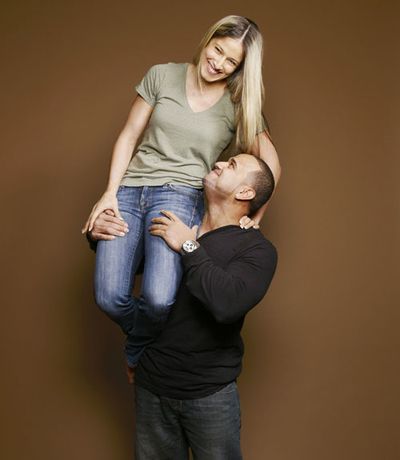
"NEVER MARRY A MEXICAN"
A Mexican-American recalls her dad's advice —By Michele Serros
The plan was to not marry a Mexican. Don't believe me? I have proof: a letter I wrote to "my future daughter" when I was 11 years old. There it is, in proper preteen cursive handwriting:
"When I grow up, I'm going to marry a surfer with blond hair and brown eyes. He's not going to be a Mexican."
Before you judge me, know that I'm a Mexican-American myself. And that I never rejected my heritage altogether. As a child in Oxnard, California, a coastal town near Malibu, I loved hearing my father recite the works of 19th-century poet Amado Nervo, eating chicharrones (fried pork skins) as an after-school snack, and showing off my limited Spanish slang. But as much as I treasured those memories I felt only a Mexican family could create, my parents — especially my dad — told me that, for my own good, I should look outside of our culture for love.
One day when I was 8 years old, I tagged along with my dad to his job as a janitor at the city airport. Even I could see that he seemed invisible. Although he had worked there for three years, many people didn't know his name. By comparison, the tall white pilots strolled through the airport with purpose, commanding respect. My father nodded to them and told me, "That is the kind of man you want to marry. A white man."
My parents' relationship only underscored that message. For 18 years, I heard them argue about my father's salary, which wasn't enough to afford my mom the lifestyle she wanted. Eventually, those fights tore their marriage apart. To avoid my mother's fate and to live a prosperous life, I knew what to do: not marry a man like my dad.
Throughout my 20s, I followed my parents' advice, dating only white guys. When I was 30, I fell in love with — and married — a white man who was an aspiring rock star. He wasn't rich and his career wasn't exactly father-approved. But my husband embodied excitement and opportunity, and he embraced my culture, learning Spanish.
Ultimately we weren't compatible, and our marriage ended after two years. With divorce papers in the works, I flew to New York City to emulate Erica Benton, Jill Clayburgh's character in the 1978 film An Unmarried Woman. Benton rediscovered love after her divorce. Maybe I could, too.
I moved to the predominantly Dominican area of Washington Heights, where meeting my white prince seemed unlikely. The guys who lived in my neighborhood were mostly newcomers to the United States, and as a fourth-generation Californian, I just couldn't relate. Through my job in publishing, I fell in with a mostly white crowd of creative types. And I spent most nights below 125th Street, in karaoke bars and at poetry readings.
After living in Manhattan for a decade, I had dated casually but hadn't met anyone who fit my husband model. From talking to my family in California, I knew that my younger female cousins were repeating the same pattern: They wanted so badly to emulate the roles played by Jennifer Lopez in films like Maid in Manhattan, Monster-in-Law, and The Wedding Planner — young Latinas who marry wealthy white men. But if I hadn't achieved that by my late 30s, was there any hope for my cousins?
On a trip to Berkeley, California, in the summer of 2010, a friend treated me to lunch at a vegan Mexican restaurant. As the handsome chef-owner took our order, he said he recognized me from back home. We had both attended Santa Clara High School, and Antonio confessed to having had a crush on me. I blushed as he recalled my teenage persona: a New Wave girl who "only hung out with the skinny white boys." I didn't remember him, but now, 25 years later, I was drawn to his lean build and intense eyes. When he asked me to lunch, I didn't overthink it — my plan was to not marry a Mexican, not avoid having lunch with one.
We spent the remainder of my weeklong trip together, talking late into the night over vegan tikka masala and red wine from Sonoma Valley. Since Antonio had a hectic work schedule, text messages flew back and forth between us when we couldn't be together. He was direct: Te quiero, te extraño — I want you, I miss you. And when he touched my nose — a feature I always disliked — and told me he loved it, I knew I was falling for him.
Antonio was turning around my perception of Mexican guys, but I could still hear my father's voice. At face value, Antonio represented everything I was told would block my success. He was the man who, despite all his accomplishments, embodied an ethnicity that would hold me back in life. And yet, I was a successful writer with a thriving social life and a new co-op apartment. I was struck by a realization: On my own, I had achieved the kind of life my father said only a white man could give me. This revelation freed me to be with the man I loved.
Within a month we told our friends that we wanted to get married. But the last hurdle was introducing him to my dad.
Antonio and I flew home to Oxnard for the big first meeting. On the morning Antonio met my father, he whipped up vegan pozole and tamales. Although an enticing aroma of chile California and corn tortillas enveloped the kitchen, I couldn't eat, I was so nervous about how my father would react. As they ate, my father was cordial yet reserved. I braced myself as he asked Antonio if he owned his own home and about his college education, and I could tell he was pleasantly surprised by Antonio's plans to expand his business to New York City. Soon my dad and Antonio were laughing about mutual friends from the old neighborhood. It was then that I finally exhaled. I had made my dad and myself happy at once.
Antonio and I were married this past June. While I no longer write letters to my future daughter, I now share a stepdaughter with Antonio from his previous relationship. And this is what I want her to know:
"Dear step-hija, I did not marry a surfer with blond hair and brown eyes. I married your dad, a Mexican just like us. And the best-laid plans are often the last thing you really need."
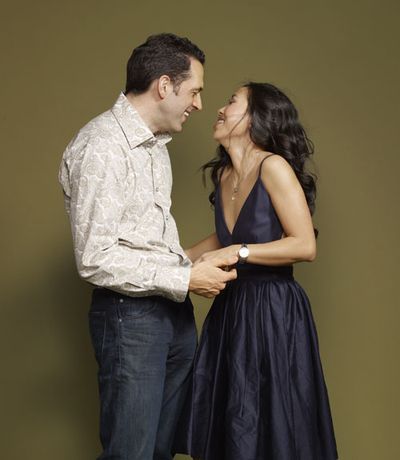
THE ASIAN THING
Want to date me? Fetishists need not apply —By Ji Hyun Lee
Sometimes men try to get my attention —By greeting me in Chinese: "Ni hao ma." If I tell them I'm Korean, they'll try Japanese: "Konichiwa." Perhaps they think all Koreans speak Japanese? My physical Asian-ness (fair skin, jet-black eyes, China-doll-round cheeks, and petite size) is apparently blinding — it's all they can see. In college, a boyfriend with a telltale string of Chinese ex-girlfriends asked me to try smoking a cigarette with my vagina — something he'd seen on an Asian porn site. (I dumped him.) Even in progressive New York City, I recently fended off a lecherous 40-something bus passenger who leaned in to tell me how "accommodating" he found the Korean girls who worked in the deli near his office. All my life, I've had to deal with guys with an "Asian thing" — men attracted to a stereotypical idea of Asian women: We're docile, hardworking lotus flowers —By day and sexual tigers —By night.
I haven't had that much experience with Asian men, I should point out. In fact, I've never dated one. Part of it may be that Asian guys rarely hit on me, perhaps because many aren't raised to be assertive with women. But I also haven't been interested in them, maybe because of how I was socialized: I tend to be attracted to aggressive men and often perceive Asian guys as passive. (I know, I know — I need to work on my own stereotyping!) But I've found myself in a dating pool of mostly white men, many of whom have offensive, clichéd views — in a word, fetishists.
It's a problem faced —By many women I know. Karen Lee, a 28-year-old Korean-American marketing executive in New York City, has unwittingly dated so many fetishists that she's edited her online dating profile to remove any mention of her race because a friend told her that "guys search for those words and then go through all the associated girls." But her tactics have been only so successful. After meeting one cute new guy, she checked his Facebook page and found that all of his newest friends were Asian women. "That was a red flag," says Lee. Now she's guarded. "Every time someone messages me, I wonder if it's because I'm Asian."
Lena Chen, 22, recalls a boyfriend who said he was into her because Asian girls were thinner, less loud, and more promiscuous than white women. "He was saying I only got his attention through an arbitrary twist of genetic fate," says Chen. That wasn't Chen's first experience with stereotypes about Asian women. When she chronicled her dating life as a Harvard undergrad on her blog, one commenter called her a "comfort woman," and she fielded queries about the mythical smallness of the Asian vagina.
Where do guys get this stuff? Pop culture is rife with female Asian stereotypes. Case in point: The 2010 film The Social Network, which dramatized the creation of Facebook, was bursting with hypersexualized Asian female characters who partied with the Harvard guys. One was depicted as so blinded —By passion that she even lit a fire in her boyfriend's bedroom. On Jersey Shore, cast member Ronnie once approvingly told his girlfriend Sammi that she looked Asian, causing a jealous blowout because he had an Asian ex. And the explosion of anime porn, featuring cartoon depictions of Asian women, perpetuates the stereotype that we're super-kinky.
According to Elaine Kim, a professor of Asian-American studies at the University of California, Berkeley, the origin of some of these tropes may go back centuries to Japanese geishas, female entertainers trained in classical music and dance who performed for men at high-class social gatherings. Then came the seedy sex clubs staffed —By poor women that proliferated around U.S. military bases in Asia during the Korean and Vietnam wars. On a research trip to South Korea in 1987, Kim visited a sex club where women performed contortionist sex acts for patrons, including tourists and servicemen. One even put a knife in her vagina and used it to cut a cucumber. Kim also recalls racist myths about Asian women during her childhood in the 1960s: that they could gestate a ba—By in six months or had a slanted vagina to match their eyes. "The idea was that these women had different bodies, and it was exotic," says Kim.
Those myths might feel antiquated, but from my experience they're alive and well today in some form or another in the minds of many guys. So where does all of this leave me and my single self? Since I can't single-handedly re-educate mankind, I'm trying to make changes in my own life — like being more open-minded about dating Asian men. I'm noticing that the Korean boys who were invisible to me in high school have grown up into a handsome lot. I also joined a few Asian meet-up groups in an effort to get dates. My latest crush is a Korean doctor whom I met in the emergency room after I slipped while walking my dog.
My advice to other Asian women: Initially, it may be hard to gauge whether a guy is a fetishist or is genuinely into you, but if he has a bevy of Asian acquaintances (but can't keep their names straight) and keeps asking you how flexible you are, you've got your answer.
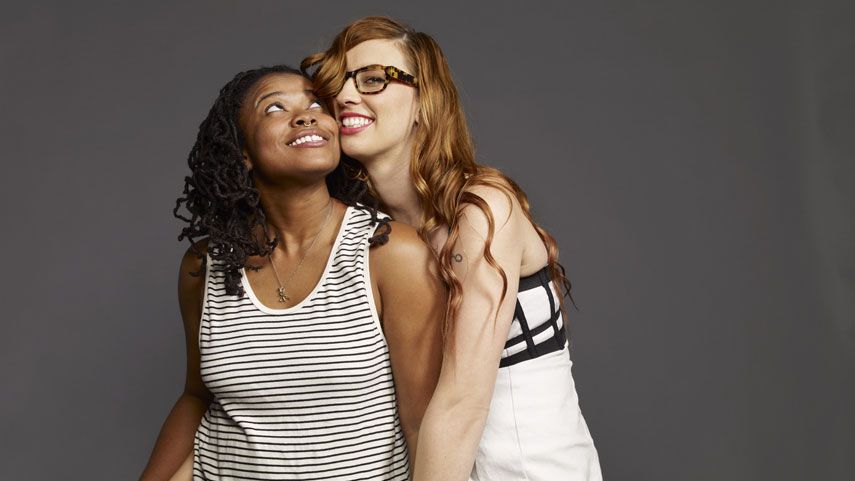
SETTING THE RECORD STRAIGHT
I'm a young black woman. And despite what you've read, I will get married —By Helena Andrews
Consider this my formal declaration of war — on numbers. I'm talking statistics, percentages, fractions, averages. If they can measure something like my marriage prospects, then I want nothing to do with them. Because for too long, one number has dominated the love lives of black women — and it's time to revolt.
Chances are, you've heard the offending statistic: 70 percent of black women are single. A hot topic in the media, this fact has been the basis of an ABC News Nightline segment about "the black girl's curse"; crowed about in a recent Atlantic cover story; and debated in the opinion pages of The New York Times. Even Oprah devoted a show to the "crisis" of single black women. And now my dire love life has become fodder for national best sellers, like Stanford law professor Ralph Richard Banks' Is Marriage for White People? and Steve Harvey's book Act Like a Lady, Think Like a Man, which was spun into a film that hit theaters in March.
So, according to the data — and the media that are obsessed with it — I'm screwed. As a 31-year-old college-educated black woman who's never been married, everywhere I turn, the odds of finding a good man are against me. That is, of course, until I turn over every morning to the man sleeping next to me. He is (gasp) black. He is (quelle surprise!) college-educated. He isn't a felon, a deadbeat, a father of illegitimate children, or a cheat — all the categories women like me are forced to choose from, according to the seemingly never-ending stories about the "crisis" of black marriage. Attention, media! There is no crisis in my bedroom.
Many black women I know say the exact same thing: Where is this epidemic of singledom, anyway? "In my social network the number of women my age who are unmarried is low," says New York City — based TV producer Nyree Emory, 38, who is single. "I can count how many I know personally — um, two. I'm a minority among my peers. I keep wondering if this cluster of single women are all hanging out without me. Because I don't see them."
Nyree is single — not sad, desperate, and lonely. But the numbers continue to be rolled out at her feet like a red carpet to retiring alone. "Scholars and the media have pathologized the black family as different from the mainstream," says entrepreneur Jamyla Bennu, 36, from Baltimore, Maryland, who has been happily married for 12 years. "That's not how most black women see it."
How could my experience and that of so many other black women be so different from the official statistics? I wanted to find out — so I started digging. Because so many news reports repeat the 70 percent figure without citing a source, I went straight to the mother lode of demographic data: the U.S. Census.
And what I found was shocking: While, according to 2009 data, it's true that 70.5 percent of black women were never married compared with 45 percent of white women, look closer and you'll see that the figure pertains only to women between the ages of 25 and 29. Not that surprising, right?
Researching further, I found another U.S. Census statistic that may have sparked the frenzy. According to the 2009 data, only 30 percent of black women were married — but the data includes every female from 15 years old up to 90-somethings. So ... my ba—By cousin and grandmother are single. Is that really a crisis?
Finding those reports only made me more curious about the truth — what are the real numbers, since we've been so focused on bogus ones? I called Ivory Toldson, a psychology professor at Howard University who analyzed census data between the years 2000 and 2009. "Our research shows that most black women eventually do marry," he says. "And 75 percent of black women older than age 35 have wed at least once."
That should clear things up, right?
Tina Wells, 32, of Philadelphia, Pennsylvania, doesn't need convincing. Wells is the CEO of the company Buzz Marketing Group, and she deals with numbers all day — compiling, analyzing, and then reporting them to big-name clients. But in her dating life, "the numbers" don't add up to much. "The statistic that the media love to hype means nothing to me," she says. "I'm focused on living my best life, and —By doing that, I'll attract the right guy."
While it's great to know that most black women's lives don't match the exaggerated numbers, the media are not only to blame. Black people themselves perpetuate the hype.
Recently I took my boyfriend on a "meet the family" tour from Washington, D.C. to North Carolina to Southern California. At every stop, my relatives devoured him from the screen door. And why wouldn't they? He's not just tall, dark, and handsome, but adventurous, talented, and hardworking.
I know my family wished him for me, the daughter who made it to the Ivy League and New York, but some relatives didn't expect me to find him. When I did, they couldn't believe it. I'd forgotten that my aunts watch the news, too. They read The New York Times, listen to Steve Harvey's advice, and watch all of Tyler Perry's movies, which suggest that a woman like me would never find a guy like the one sitting on the couch in my grandmother's house. They too succumbed to the statistics, believing that there is a shortage of men who not only looked like me but also were for me.
On New Year's Day we all sat in the dining room. As my aunts piled slices of pie onto my boyfriend's plate, I watched my cousin play I Declare War with his wife. I Declare War is probably the most boring card game ever. Nobody wins, it's just a never-ending stack of number upon number upon number. But they were smiling, happy to be together. An aunt nudged me and said, "That's how it should be. Just enjoy each other." Then she winked at my boyfriend, who was none the wiser.
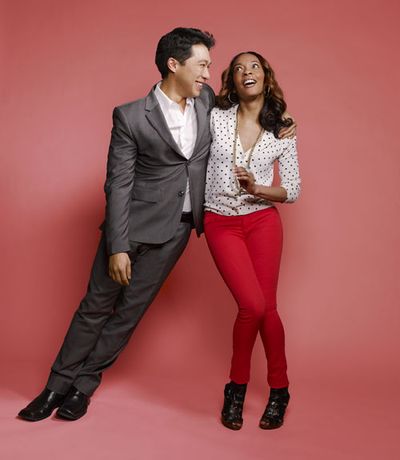
BREAKING THE RULES
Afghan-American actress Azita Ghanizada and her parents learn about love in the U.S. AS TOLD TO CARITA RIZZO
In Afghan culture, you don't date — you marry. Even talking to boys before marriage brings great shame to your family.
My parents learned that the hard way. They met in Kabul when my dad was a 25-year-old playing in a Beatles cover band and my mom was the 13-year-old daughter of a well-off, prominent family. Their age difference may sound extreme, but it's not in Afghanistan, where younger girls are often married off to much older men. After school, my mom would sneak over to music venues where my dad played and hang out with him after the show. When their parents discovered their fledgling romance, they were forced to marry.
I'm not sure if they would have married if they'd had a choice.
In 1979, when I was toddler, the Russians invaded Afghanistan, and my whole family fled to Vienna, Virginia. Far from home, my parents were determined to raise my two sisters and me according to Afghan traditions. We prayed five times a day and attended mosque and Farsi school, and my sisters and I weren't allowed to associate with boys. My parents' plan was for us to someday marry Afghan men of their choosing. They didn't want us to shame our family the way they had shamed theirs.
Even at an early age, I rebelled against my strict upbringing. When I was 9, I built myself a "make-out fort" in our backyard from wood, filled it with candy, and invited my blond, blue-eyed neighbor over to kiss. One day my mom caught us together and my dad kicked down the fort, but it was too late. I had gotten a taste of something forbidden, and I knew that my parents' lifestyle wasn't for me. I didn't want kabobs, Afghan music, and rules that required girls to be carefully monitored. I wanted mac and cheese, country music, and independence.—By my early teens, everyone in the local Afghan community — neighbors, my parents and their friends — already considered me too Western to be a proper wife. It was true. I loved American fashion and wore Guess jeans, sprayed my hair with Sun-In (turning it orange), and slathered my body with ba—By oil before sunbathing. I also threw myself into after-school activities. My parents forbade me from joining theater groups (in case there was a kissing scene), but they let me join the cheerleading squad, and I became class secretary. They didn't know that after school, I led a secret life with my girlfriends. We'd raid their parents' liquor cabinets for Johnnie Walker scotch and hang out in the McDonald's parking lot, drinking and flirting with older boys.
But I wasn't the only one in my family who had begun breaking away from our Afghan traditions. My dad started wearing baseball caps and polo shirts, watching football on Sundays, eating at Pizza Hut, and hitting the gym. He spent more time at dinners with his gym buddies and less time with our family. Meanwhile, my mom preferred to spend her weekends with my grandparents, cooking and talking.
My parents began fighting over their divergent lifestyles until it got so bad that my dad would come home from work, walk to his room in silence, and close the door. The tension carried on for years until they realized they had a choice. This wasn't Afghanistan. They could separate.
Their decision outraged our local Afghan community. I remember a group of about 30 people descending on our house to convince my parents to stay together. I locked the door, but they banged on it, shouting, "No one will marry your daughters with such shame!"
Pressure from the community kept my parents together for six more years, but eventually my mother decided to end her failing marriage. I was shocked at her bold move — traditional Afghan couples just don't divorce, much less at the wish of the wife. I thought she would sooner die in a loveless marriage than break with tradition, an act punishable —By disownment, exile — and in our homeland, even death.
After my parents' divorce, the first in our family, we entered a scary, messy new world. My father eventually started dating a blonde American doctor who walked around barefoot in her big house and laid her legs across my dad's lap right in front of me. It was odd to witness. I recall thinking that if this were Afghanistan, she would have been beaten with a stick.
But my father was finally laughing and being playful, things I didn't know he was capable of. Seeing him like that made me happy. He was living for himself — not for his culture — just what I had always wanted for my own life.
My mother moved on, too, but for her, marrying another Afghan man was the only righteous path. A few years after the divorce from my father, she booked a two-month trip to Pakistan to visit family. While there, she agreed to an arranged marriage with an Afghan engineer. She married him right away and moved back to Virginia with her new husband. When my mom called to share her news, I was shocked. But I take comfort in the fact that her marriage will remain intact due to her husband's strong beliefs in his religion and culture.
My parents' breakup, though painful, has benefits for me. While they are exploring their new romantic lives, they spend far less time trying to plot mine. The lesson they are learning is clear: Loving someone from the same race or religion doesn't guarantee happiness. It's no longer as important to them that I marry a "good Afghan man." My dad's advice now is simply: "Marriage will come when the time is right." I did introduce him to one American boyfriend I was serious about. He wasn't Afghan, but my dad knew I was in love, so he made an effort to bond with my boyfriend over their shared love of watching football at TGI Friday's. In the end, my dad admitted he was a good guy — maybe knowing all along that I was capable of making a smart decision. I'd be lying, though, if I said that my parents don't hold on to a small string of hope that I'll have a change of heart and end up with a traditional Afghan husband. They can't help it. But while I doubt that's going to happen, I'll break that to them later.
Dedicated to women of power, purpose, and style, Marie Claire is committed to celebrating the richness and scope of women's lives. Reaching millions of women every month, Marie Claire is an internationally recognized destination for celebrity news, fashion trends, beauty recommendations, and renowned investigative packages.
-
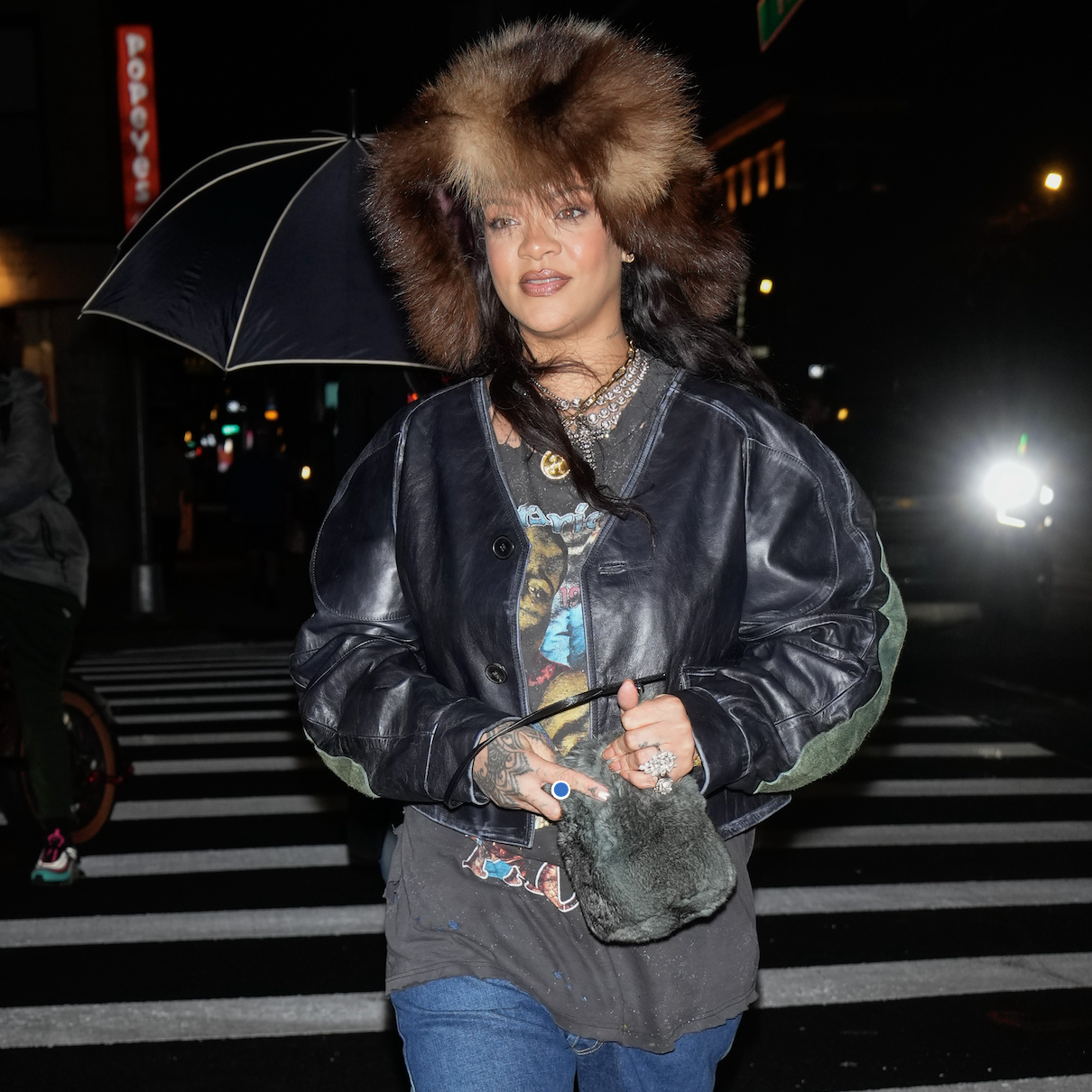 Rihanna Won't Carry Just Any Black Leather Bag
Rihanna Won't Carry Just Any Black Leather BagHers is $2,950 and from a resurgent designer.
By Halie LeSavage Published
-
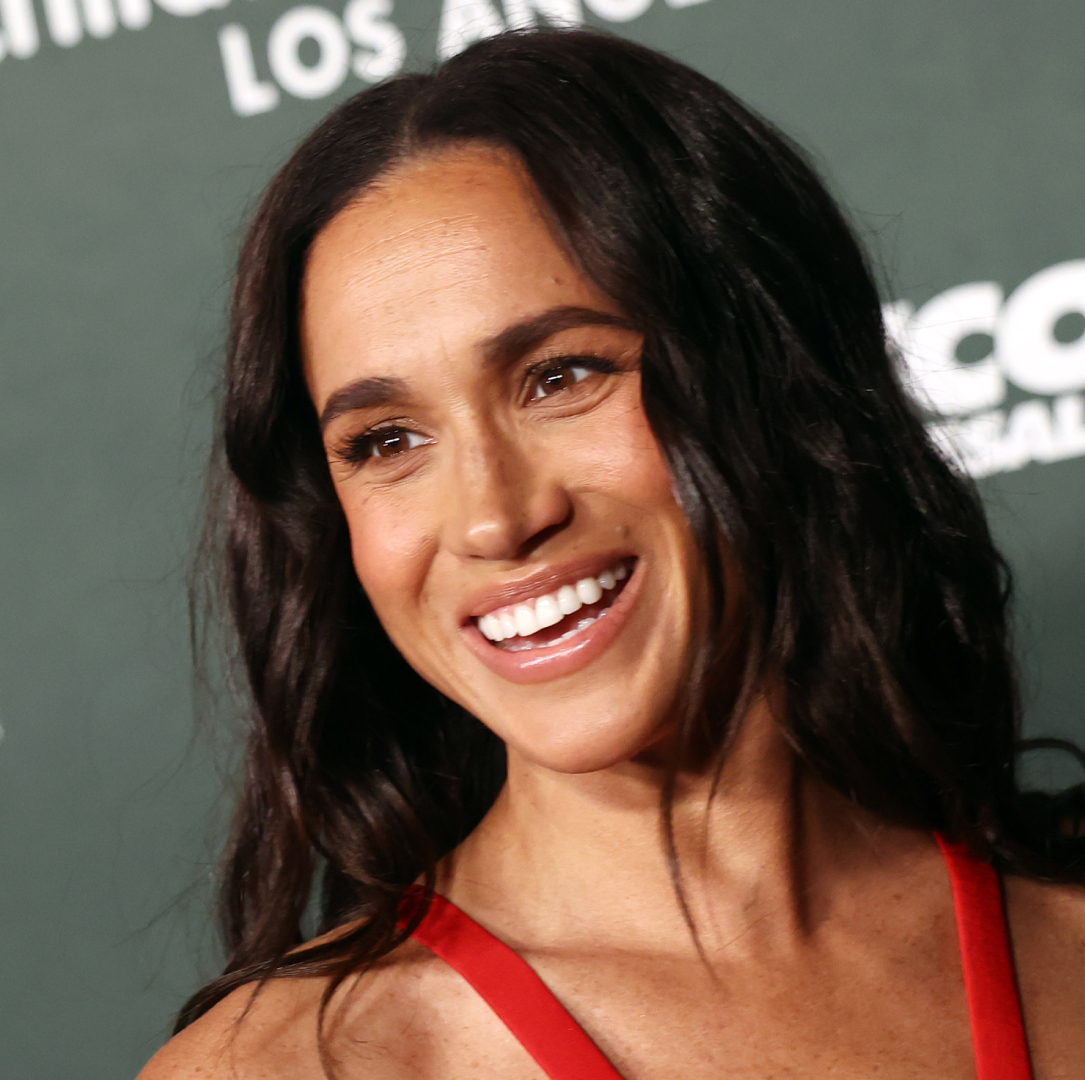 Meghan Markle Reveals "Scary" Post-Birth Health Battle in First Episode of New Podcast
Meghan Markle Reveals "Scary" Post-Birth Health Battle in First Episode of New Podcast"I mean life or death, truly."
By Kristin Contino Published
-
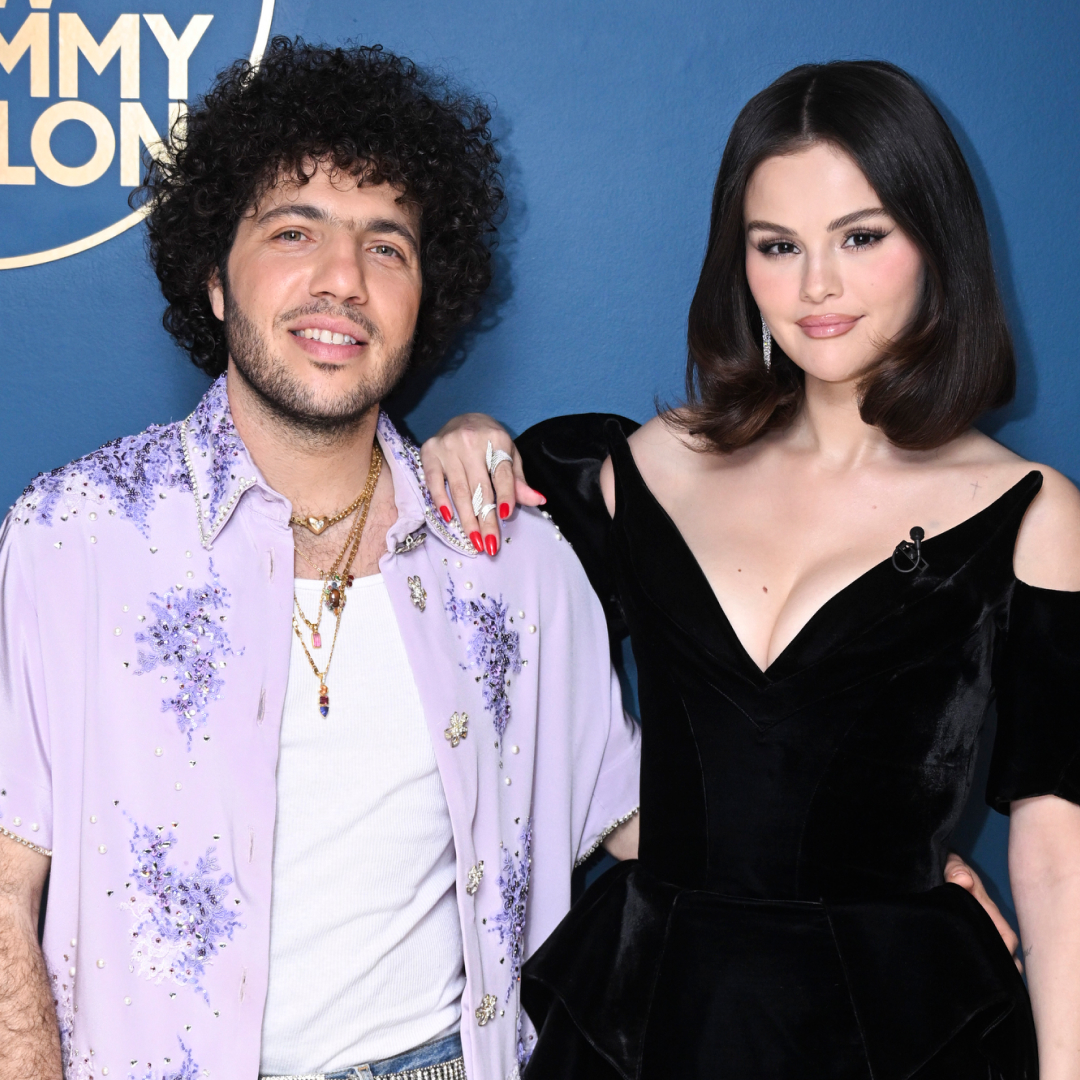 Selena Gomez Gives a Candid Look at Her and Benny Blanco's Life in New Instagram Pics
Selena Gomez Gives a Candid Look at Her and Benny Blanco's Life in New Instagram PicsTheir lives are totally normal! Sort of...
By Lia Beck Published
-
 30 Female-Friendly Porn Websites for Any Mood
30 Female-Friendly Porn Websites for Any MoodFeatures All the best websites, right this way.
By Kayleigh Roberts Published
-
 The 82 Best Cheap Date Ideas for Couples on a Budget
The 82 Best Cheap Date Ideas for Couples on a Budget"Love don't cost a thing." —J.Lo
By The Editors Last updated
-
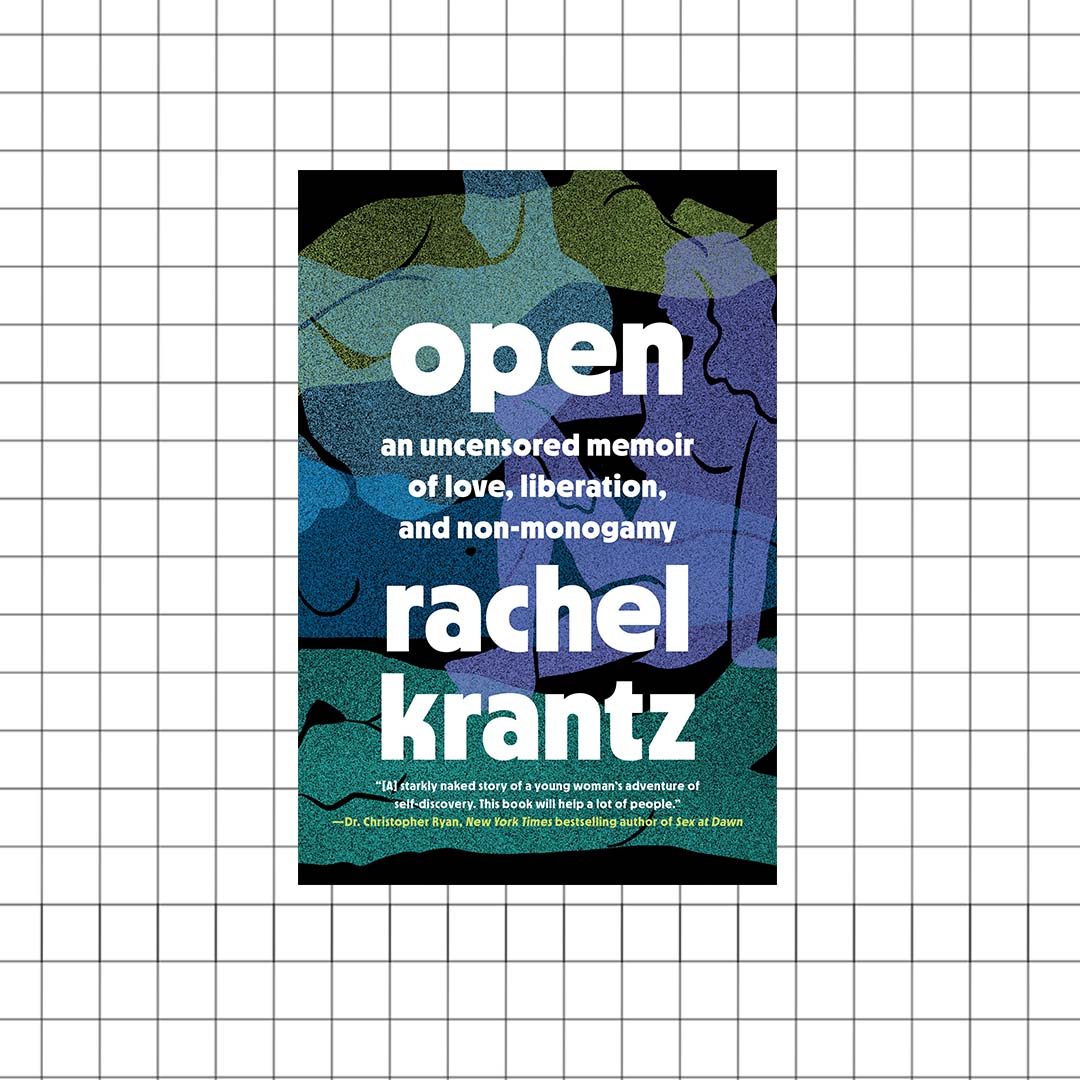 Diary of a Non-Monogamist
Diary of a Non-MonogamistRachel Krantz, author of the new book 'Open,' shares the ups and downs of her journey into the world of open relationships.
By Abigail Pesta Published
-
 COVID Forced My Polyamorous Marriage to Become Monogamous
COVID Forced My Polyamorous Marriage to Become MonogamousFor Melanie LaForce, pandemic-induced social distancing guidelines meant she could no longer see men outside of her marriage. But monogamy didn't just change her relationship with her husband—it changed her relationship with herself.
By Melanie LaForce Published
-
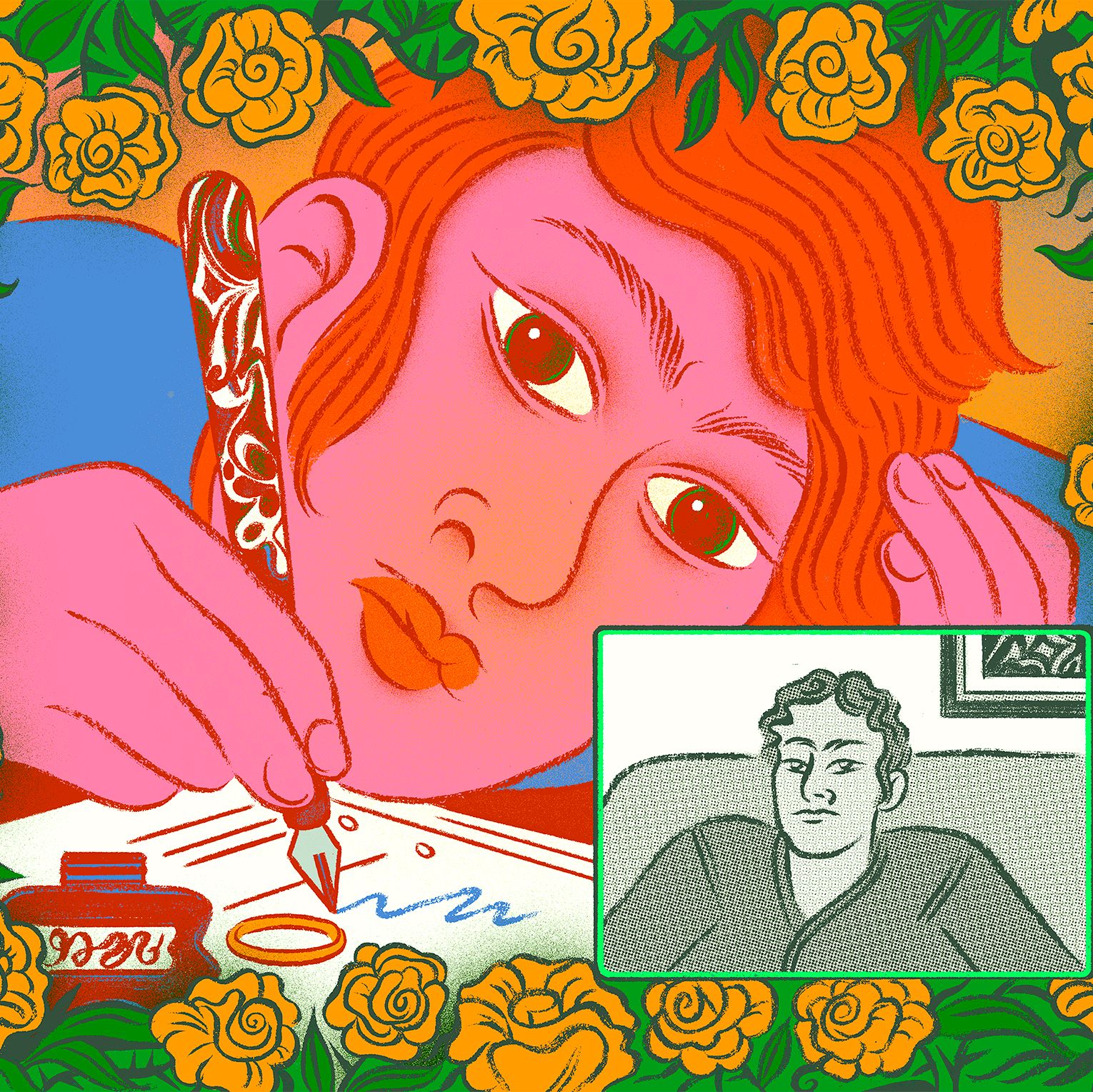 COVID Uncoupling
COVID UncouplingHow the pandemic has mutated our most personal disunions.
By Gretchen Voss Published
-
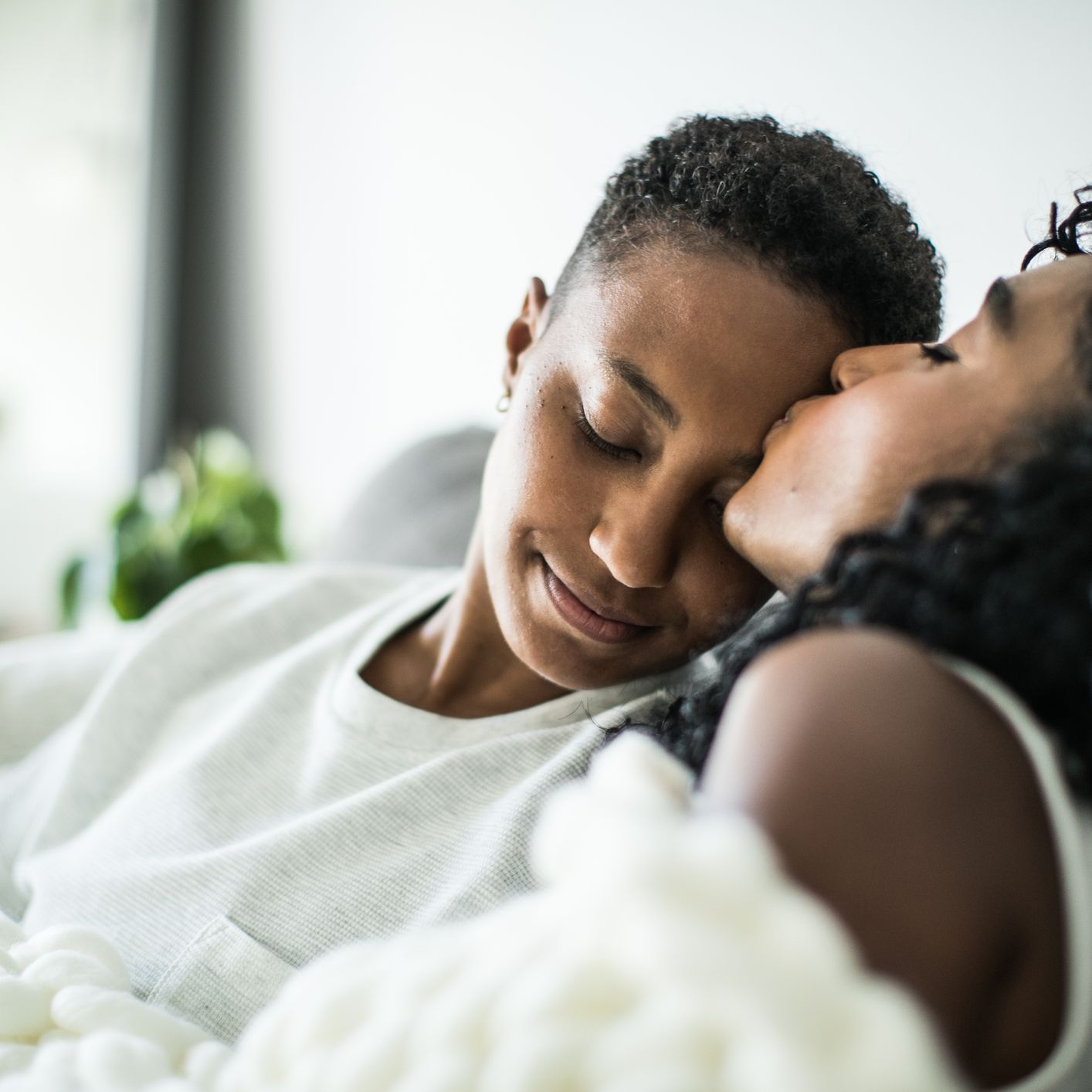 16 At-Home Date Ideas When You're Stuck Indoors
16 At-Home Date Ideas When You're Stuck IndoorsFeatures Staying in doesn't have to be boring.
By Katherine J. Igoe Published
-
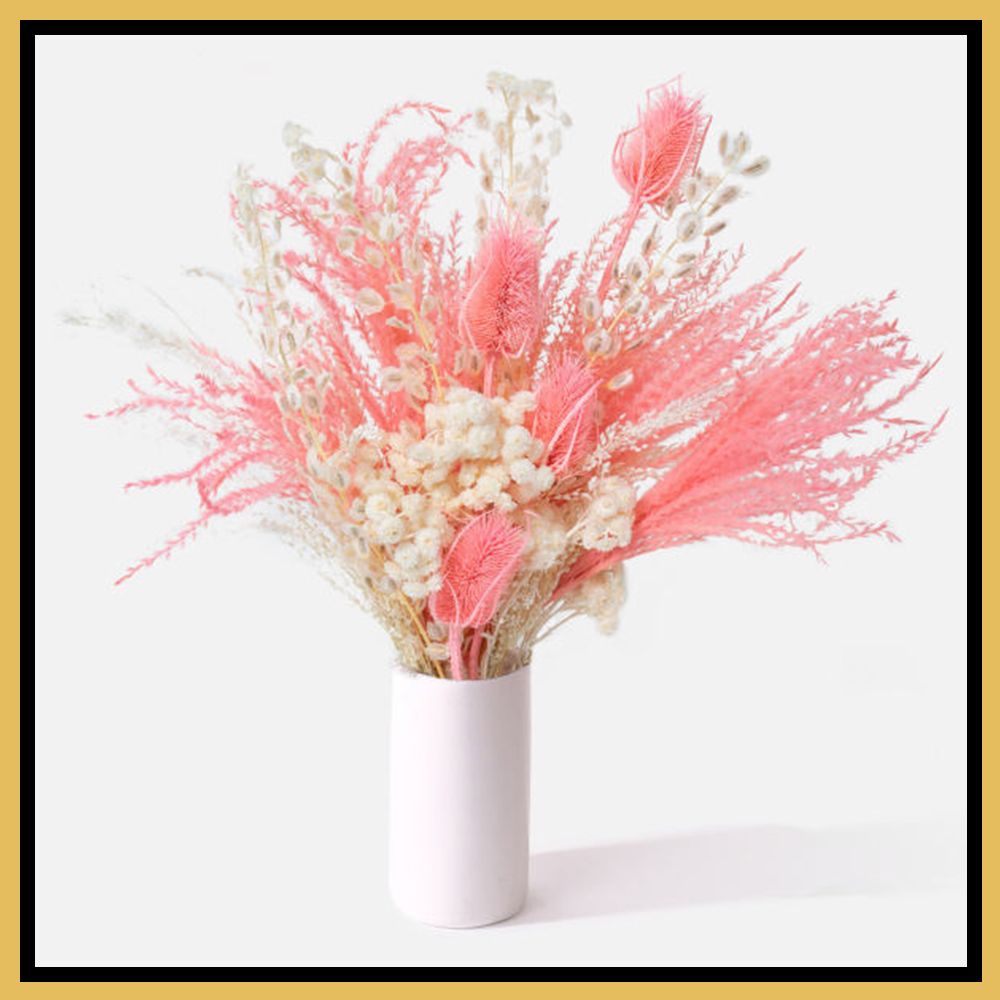 Long Distance Relationship Gift Ideas for Couples Who've Made It This Far
Long Distance Relationship Gift Ideas for Couples Who've Made It This FarAlexa, play "A Thousand Miles."
By Jaimie Potters Published
-
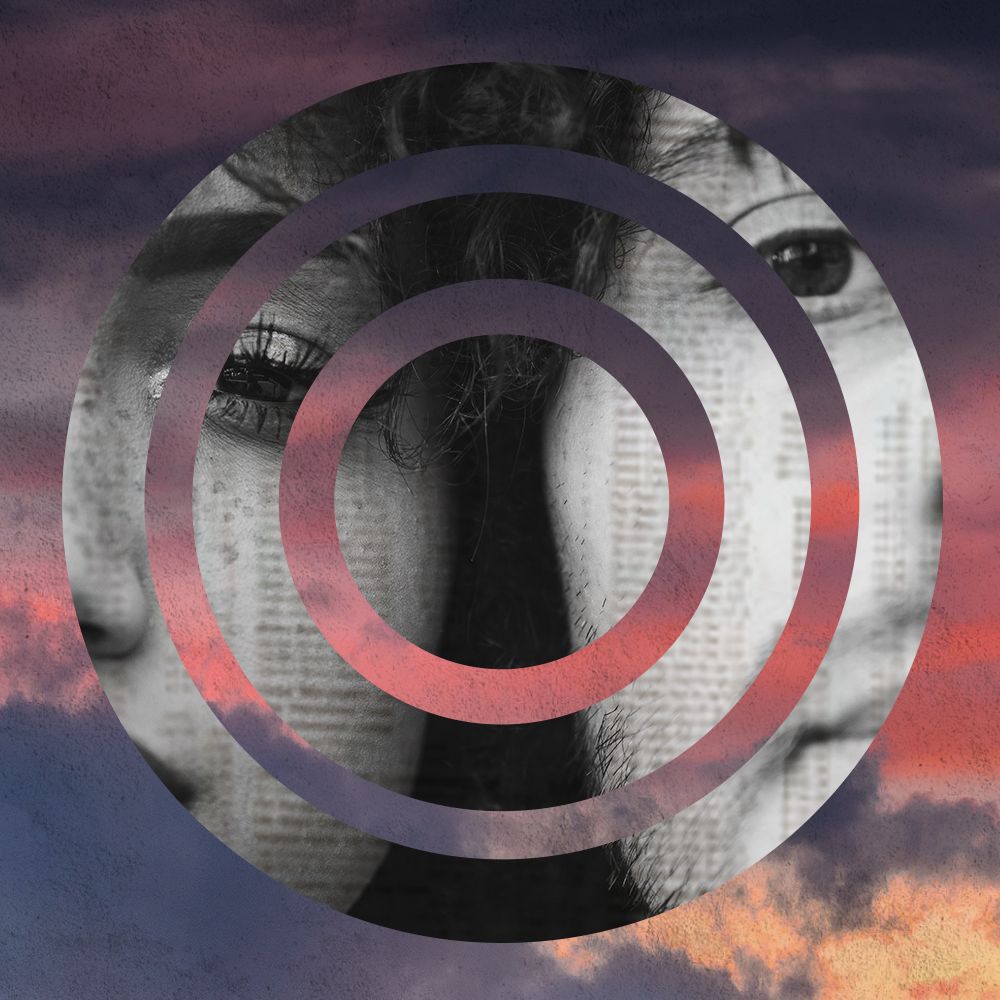 15 Couples on How 2020 Rocked Their Relationship
15 Couples on How 2020 Rocked Their RelationshipFeatures Couples confessed to Marie Claire how this year's many multi-stressors tested the limits of their love.
By Sherry Amatenstein, LCSW Published